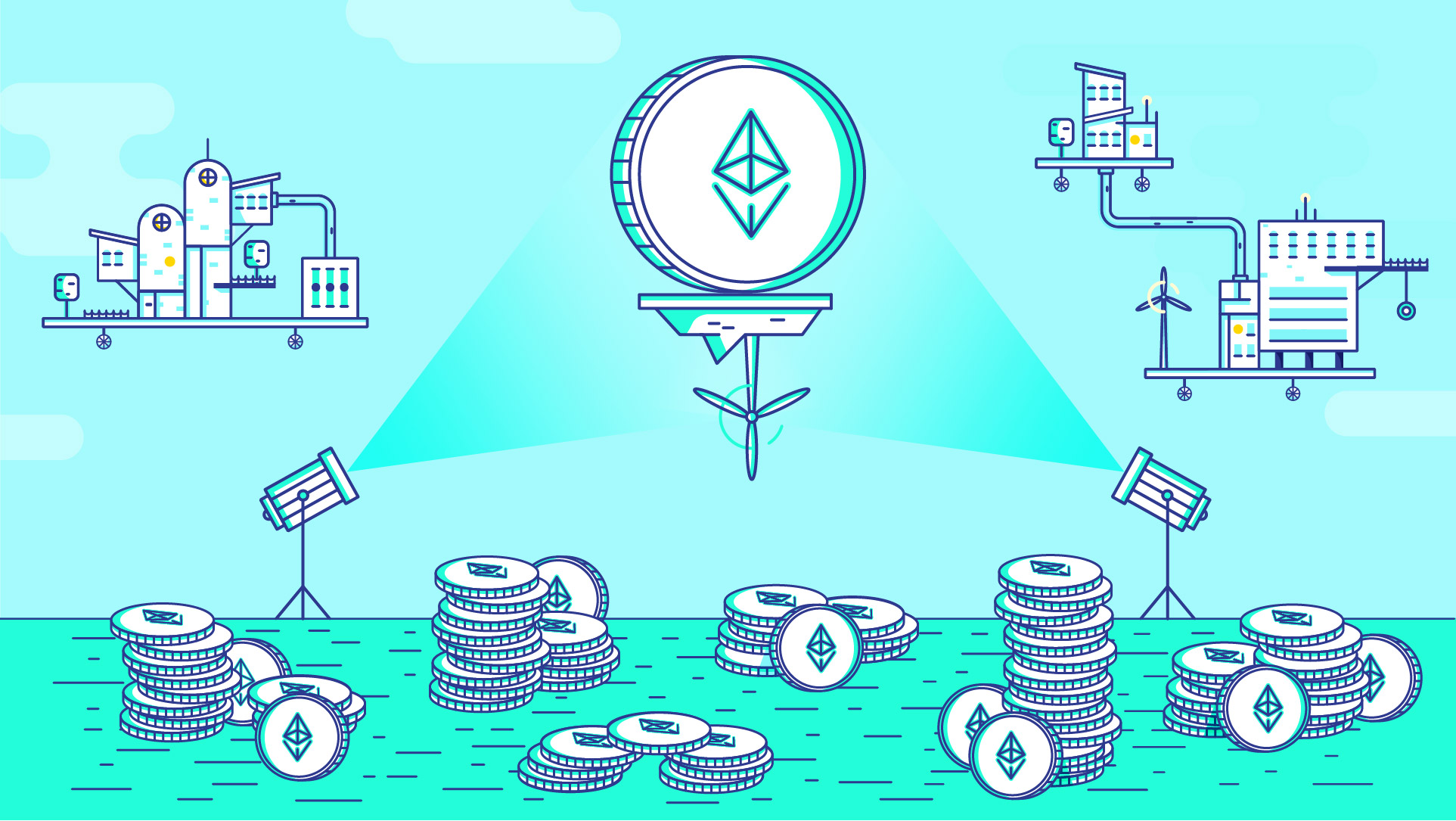The Role of Tokens in Building Decentralized Applications

- Understanding the concept of tokens in decentralized applications
- The benefits of using tokens for building decentralized applications
- How tokens facilitate transactions within decentralized applications
- Token standards and their importance in the development of decentralized applications
- Challenges and considerations when integrating tokens into decentralized applications
- The future of tokens in the evolution of decentralized applications
Understanding the concept of tokens in decentralized applications
Understanding the concept of tokens in decentralized applications is crucial for grasping the role they play in the ecosystem. Tokens are digital assets that represent a unit of value on a blockchain. They can serve various purposes within decentralized applications, such as facilitating transactions, granting access to services, or participating in governance mechanisms.
One of the key characteristics of tokens is their ability to enable peer-to-peer transactions without the need for intermediaries. This feature promotes transparency, security, and efficiency in decentralized applications. Additionally, tokens can be programmed with smart contracts to automate certain processes, such as distributing rewards or enforcing rules.
Furthermore, tokens can be categorized into different types based on their functionality. Utility tokens are used to access a specific service or product within a decentralized application. Security tokens represent ownership of an asset or company and may offer dividends or profit-sharing. Governance tokens allow holders to participate in decision-making processes within the ecosystem.
Overall, tokens are essential building blocks of decentralized applications, providing incentives for users, aligning interests, and creating vibrant communities. By understanding how tokens work and their various uses, developers and users can fully leverage the potential of decentralized applications to drive innovation and decentralization in the digital economy.
The benefits of using tokens for building decentralized applications
Using tokens for building decentralized applications offers a wide range of benefits that contribute to the overall success and efficiency of the application. Tokens serve as a means of value exchange within the decentralized ecosystem, enabling users to participate in various activities and transactions seamlessly. By leveraging tokens, developers can create incentives for users to engage with the application, driving adoption and growth.
One of the key advantages of using tokens is the ability to facilitate secure and transparent transactions on the blockchain. Tokens enable peer-to-peer transactions without the need for intermediaries, reducing costs and increasing the speed of transactions. Additionally, tokens can be programmed with smart contracts to automate processes and ensure trustless interactions between parties.
Furthermore, tokens can be used to govern the decentralized application, allowing users to participate in decision-making processes and shape the future development of the platform. Token holders can vote on proposals, suggest improvements, and contribute to the overall governance of the application. This democratic approach empowers users and fosters a sense of community within the ecosystem.
How tokens facilitate transactions within decentralized applications
Tokens play a crucial role in facilitating transactions within decentralized applications. These digital assets are used as a medium of exchange, allowing users to interact with the application and access its features. By using tokens, users can make payments, participate in governance processes, and even earn rewards within the decentralized ecosystem.
One of the key advantages of using tokens for transactions is the efficiency they bring to the process. Since transactions are recorded on a blockchain, they are secure, transparent, and immutable. This eliminates the need for intermediaries and reduces the risk of fraud or manipulation. Additionally, tokens can be easily transferred between users, making transactions quick and seamless.
Furthermore, tokens can also serve as a form of incentivization within decentralized applications. Developers can reward users with tokens for contributing to the network, such as by providing computing power or verifying transactions. This incentivization mechanism helps to drive user engagement and participation, ultimately strengthening the decentralized ecosystem.
In conclusion, tokens are essential for facilitating transactions within decentralized applications. They provide a secure and efficient way for users to interact with the application, while also serving as a means of incentivization. By leveraging tokens, decentralized applications can create a vibrant and sustainable ecosystem that benefits both developers and users alike.
Token standards and their importance in the development of decentralized applications
Token standards play a crucial role in the development of decentralized applications (dApps). These standards define the rules and guidelines for creating and managing tokens on blockchain platforms. By adhering to these standards, developers can ensure interoperability and compatibility between different tokens and dApps.
One of the most popular token standards is the ERC-20 standard, which has become the foundation for a vast number of tokens on the Ethereum blockchain. This standard specifies a set of functions that a token contract must implement, allowing tokens to be easily traded and integrated with various dApps.
Another important token standard is ERC-721, which is used for creating non-fungible tokens (NFTs). NFTs are unique digital assets that represent ownership of a specific item or piece of content. These tokens have gained popularity in the art, gaming, and collectibles industries.
Token standards are essential for the growth and adoption of dApps as they provide a common framework for developers to work within. By following these standards, developers can create tokens that are compatible with existing infrastructure and can be easily integrated into a wide range of applications.
Challenges and considerations when integrating tokens into decentralized applications
Integrating tokens into decentralized applications can present various challenges and considerations that developers need to address. One of the main challenges is ensuring the security and integrity of the token ecosystem. Developers must implement robust security measures to protect against hacks and vulnerabilities that could compromise the token’s value and functionality.
Another consideration is the interoperability of tokens within the decentralized application. Developers need to ensure that tokens can seamlessly interact with other components of the application and with external platforms. This requires careful planning and coordination to avoid compatibility issues that could hinder the token’s usability.
Scalability is also a significant concern when integrating tokens into decentralized applications. As the user base grows and transaction volume increases, developers must ensure that the application can handle the load without sacrificing performance or incurring high fees. This may require optimizing the token’s smart contracts and underlying blockchain technology.
Regulatory compliance is another important consideration when working with tokens in decentralized applications. Developers must navigate the complex legal landscape surrounding cryptocurrencies and ensure that their token complies with relevant regulations to avoid potential legal issues in the future.
Overall, integrating tokens into decentralized applications requires careful planning, attention to detail, and a thorough understanding of the technical, security, and regulatory challenges involved. By addressing these considerations proactively, developers can create robust and successful token ecosystems that enhance the functionality and value of their decentralized applications.
The future of tokens in the evolution of decentralized applications
The future of tokens in the evolution of decentralized applications is promising. As blockchain technology continues to advance, tokens play a crucial role in the development and functionality of decentralized applications. These digital assets enable users to participate in various activities within the ecosystem, such as voting, staking, and governance.
Furthermore, tokens provide incentives for users to contribute to the network, driving engagement and growth. They also facilitate the exchange of value and enable seamless transactions without the need for intermediaries. As decentralized applications become more mainstream, the demand for tokens is expected to increase, further fueling their adoption and utility.
With the rise of decentralized finance (DeFi) and non-fungible tokens (NFTs), the use cases for tokens are expanding rapidly. From lending and borrowing to digital art and collectibles, tokens are revolutionizing the way we interact with digital assets. In the future, we can expect to see even more innovative applications of tokens across various industries and sectors.



